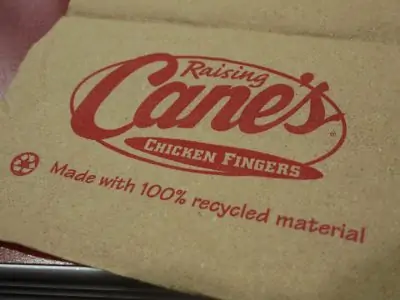
The COVID-19 pandemic has been a proverbial double-edged sword for many. The viral pandemic has put health services on their knees while simultaneously laying assault on people’s sources of income. Massive shutdowns, particularly in the service industry, have meant enormous job losses. About 2.7% of the U.S. GDP comes from travel and tourism, but following travel restrictions, the travel industry is now scrambling for financial relief alongside the manufacturing, food, and hospitality sectors.
As companies look to scale down, a lot of retrenched employees now find themselves without a means of income. Under normal economic circumstances, employee turnover results in an $11 billion loss each year. However, now with COVID-19 laying siege to business operations, a lot of U.S. businesses are laying off their employees to save money. With job cuts comes the inevitable financial turmoil for average Americans, with reports from the Labor Department suggesting an astounding 3.3 million Americans filed for unemployment benefits in just one week.
Being on the receiving end of the ongoing layoffs is a tough pill to swallow. But drastic times call for drastic measures. You’ll need to take specific actions to weather this financial hurricane. Sure, it won’t be easy — but it is necessary for survival.
First things first, it’s time to cut back on unnecessary spending and emphasize the need for budgeting. A recent poll by Pew Research established that almost 20% of senior citizens in the U.S. had not retired and were still working full-time. This figure shows that few Americans have sufficient savings to cover emergencies and retirement and highlights the need for Americans to get serious about budgeting. Luxuries like subscriptions or entertainment need to take a back seat while you focus on your non-discretionary bills, including rent, food, and utilities.
Got an emergency savings account? If your answer is yes, then there’s no time like the present to tap into it. Remember, in as much as you have that financial cushion, you have to be wise on how you use it. Cater for essential bills only and get rid of unnecessary spending. Try as much as you can to make it last for as long as possible.
For anyone out there who doesn’t have an emergency reserve to turn to, consider filing for unemployment benefits. The program usually pays 50% of what you were making at your job for a 26-week average. As of January 2020, the average weekly payout was $385, according to the Center for Budget and Policy Priorities. Soon, however, Congress is expected to pass new measures that could increase the payout and number of weeks, all to cushion against the economic blow of the pandemic.
You’ll also want to consider getting in touch with your service providers. Given the ongoing cash crunch, a lot of companies are coming up with leniency policies to help out their customers. Some power providers have gone as far as promising not to cut off supply if their customers miss a payment. Even if your utility and service providers have these policies in place, take the initiative to inform them that you intend to skip a bill.
You could also opt to suspend payments on your federal student loans. The Secretary of Education Betsy DeVos said that federal student loan borrowers can now go on a 60-day forbearance period without accruing any penalties. Better yet, an executive order from President Trump stipulates that student loans won’t continue to accrue interest. Reach out to your loan provider and discuss how you can suspend your payments for now.
As unlikely as it might seem to find a company that’s hiring, you should look out for job offerings, too. In as much as companies are retrenching workers, some sectors are actively looking for help. Warehouses and grocery stores are two prominent places that are looking for workers to come in and fill gaps now that demand for products is on the rise. Amazon, Walmart, and CVS all announced job openings with Amazon, in particular, announcing that it will pay its workers a minimum of $17 per hour.
Community programs are another haven you could turn to. The federal government is playing its part in trying to help out its citizens, but several community-level organizations could be of help. Charity organizations and food banks are two such examples. You could also dial 2-1-1 to stay informed on current events within your community and any possible programs that could offer assistance.
The urge to borrow cash right now is very tempting. But if you need to borrow some funds, avoid payday loans. These types of loans tend to carry very high interest rates, sometimes as high as 300 to 400%. If you take out, say, a $300 loan to cover a few bills, you might end up having to pay back $1,200. Payday loans carry several notoriously ominous repayment terms, so steer clear.
Roughly 60% of Americans have mortgages. If you’re among this group, you’re likely anxious about being able to make your next mortgage payment. Thankfully, a lot of state and federal governments have established programs geared towards helping homeowners experiencing financial difficulties due to the outbreak. The Federal House Finance Agency (FHFA) has instructed Fannie Mae and Freddie Mac to allow mortgage borrowers to suspend payments for up to 12 months.
If your back is really against the wall, then consider using your retirement account’s hardship withdrawal. Several retirement accounts offer the holder something known as a “hardship withdrawal” during moments of financial distress. If your employer allows it, you could take advantage of your 401(k) to get a self-funded loan or tap into a self-administered Roth IRA if you happen to have one. Experts, however, say that using this option should be your last resort since it cuts into your retirement savings while also leaving you susceptible to increased penalties if not well managed.
While the U.S. and the world continue to suffer from the harsh economic effects of COVID-19, how you react matters. You have to address your expenses while also trying to find ways of possibly getting an income. The reality is that COVID-19 is here; all you can do is try as much as you can to find ways to cope financially, physically, and emotionally.






